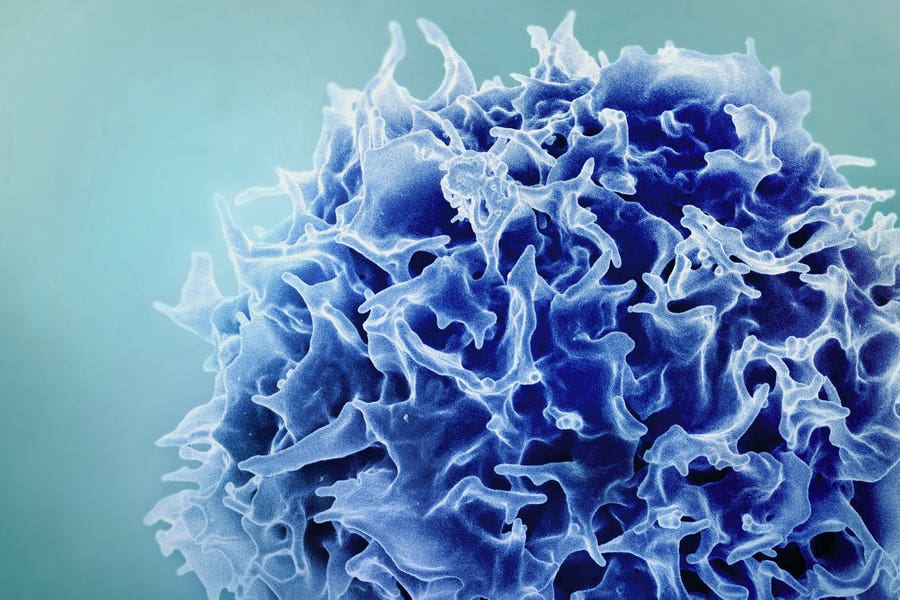Allergies to common foods could significantly increase risk of heart disease, study finds
Common food allergies, such as those to dairy and peanuts, could be a significant yet previously unrecognized contributor to heart disease.

[Nov. 13, 2023: Staff Writer, The Brighter Side of News]
Nearly a dozen genes, previously unlinked to coronary artery health, have been identified as contributors to the accumulation of calcium. (CREDIT: Creative Commons)
New research from UVA Health suggests that common food allergies, such as those to dairy and peanuts, could be a significant yet previously unrecognized contributor to heart disease. This increased risk for cardiovascular death may apply even to individuals without obvious food allergies. The study reveals that this heightened risk could be on par with, or even exceed, the risks associated with smoking, diabetes, and rheumatoid arthritis.
A team of scientists and collaborators conducted a comprehensive investigation, analyzing thousands of adults over time. They discovered that individuals who produced antibodies in response to common food allergens, even in the absence of apparent food allergies, were at an elevated risk of cardiovascular-related death.
Notably, this risk persisted even after accounting for traditional heart disease risk factors, including smoking, high blood pressure, and diabetes. While the strongest association was observed for cow's milk, other allergens like peanuts and shrimp also displayed significant correlations.
This groundbreaking discovery marks the first instance of a link between "IgE" antibodies to common foods and an increased risk of cardiovascular mortality. While the findings do not definitively establish that food antibodies directly cause the heightened risk, they build upon previous research connecting allergic inflammation and heart disease.
Related Stories
Unmasking Silent Immune Responses
Approximately 15% of adults produce IgE antibodies in response to foods like cow's milk and peanuts. Although these antibodies can lead to severe food allergies in some individuals, many adults who generate these antibodies do not exhibit overt food allergies. The study's most striking revelation was that the strongest link to cardiovascular death was observed in individuals who had these antibodies but continued to consume the respective foods regularly, implying the absence of severe food allergies.
Dr. Jeffrey Wilson, an allergy and immunology expert at the University of Virginia School of Medicine, explained, "What we looked at here was the presence of IgE antibodies to food that were detected in blood samples. We don't think most of these subjects actually had overt food allergy, thus our story is more about an otherwise silent immune response to food. While these responses may not be strong enough to cause acute allergic reactions to food, they might nonetheless cause inflammation and over time lead to problems like heart disease."
The inspiration for this investigation emerged from prior research conducted by the UVA team, which established a link between an unusual form of food allergy transmitted by ticks and heart disease. This tick-borne allergy, identified by Dr. Thomas Platts-Mills of UVA, sensitizes individuals to a specific sugar, alpha-gal, found in mammalian meat. Commonly known as "alpha-gal syndrome," this allergy can lead to symptoms such as hives, gastrointestinal distress, breathing difficulties, and even potentially fatal anaphylactic reactions, occurring three to eight hours after consuming beef or pork.
To explore whether other food allergies might impact heart health, a research team comprising Wilson, Platts-Mills, and collaborators from UVA, as well as Dr. Corinne Keet of the University of North Carolina, conducted an analysis of data collected from 5,374 participants in the National Health and Examination Survey (NHANES) and the Multi-Ethnic Study of Atherosclerosis (MESA) at the Wake Forest site. Among these participants, 285 had succumbed to cardiovascular causes.
Approximately 15% of adults produce IgE antibodies in response to foods like cow's milk and peanuts. (CREDIT: Creative Commons)
The findings demonstrated that IgE antibodies to at least one food were linked to a significantly higher risk of cardiovascular death among NHANES participants, with milk sensitivity showing the most substantial correlation. This result held true among the MESA participants as well. Further analysis also revealed that peanut and shrimp sensitization were significant risk factors for cardiovascular death in individuals who regularly consumed these allergenic foods.
Dr. Wilson noted, "We previously noted a link between allergic antibodies to the alpha-gal red meat allergen and heart disease. That finding has been supported by a larger study in Australia, but the current paper suggests that a link between allergic antibodies to food allergens and heart disease is not limited to alpha-gal. In some ways, this is a surprising finding. On the other hand, we are not aware that anyone has looked before."
Commonly known as "alpha-gal syndrome," this allergy can lead to symptoms such as hives, gastrointestinal distress, breathing difficulties, and even potentially fatal anaphylactic reactions. (CREDIT: Creative Commons)
Allergies and the Heart: A Potential Mechanism
While this research marks the first association between allergic antibodies to common foods and cardiovascular mortality, previous studies have identified other allergic conditions, such as asthma and eczema, as risk factors for heart disease.
The scientists hypothesize that allergic antibodies to food may affect the heart by triggering the activation of specialized cells called mast cells. While mast cells in the skin and gut are known to contribute to classic allergic reactions, they are also present in cardiac blood vessels and heart tissue. The persistent activation of mast cells may lead to inflammation, contributing to the harmful buildup of plaque that can result in heart attacks or other heart-related damage.
However, it's important to emphasize that this mechanism is not yet confirmed. Other genetic or environmental factors may also play a role. It's even conceivable that cardiovascular disease could increase the risk of food sensitization, implying that heart disease might elevate the risk of food allergies, rather than the reverse. Nonetheless, the new findings suggest that this is unlikely.
Further Research and Implications
The researchers advocate for additional studies to gain a better understanding of the implications of their findings before recommending any changes in how doctors approach or manage food allergies. Dr. Wilson remarked, "This work raises the possibility that in the future a blood test could help provide personalized information about a heart-healthy diet. Though before that could be recommended, we still have a lot of work to do understand these findings."
In conclusion, this groundbreaking research underscores the potential link between common food allergies, even in the absence of overt symptoms, and the risk of cardiovascular disease.
The implications of this study could have far-reaching consequences for understanding heart disease and developing more personalized approaches to heart-healthy diets and prevention strategies. While the research is still in its early stages, it provides a significant step forward in unraveling the intricate connections between food allergies and heart health.
For more science and technology stories check out our New Discoveries section at The Brighter Side of News.
Note: Materials provided above by The Brighter Side of News. Content may be edited for style and length.
Like these kind of feel good stories? Get the Brighter Side of News' newsletter.



